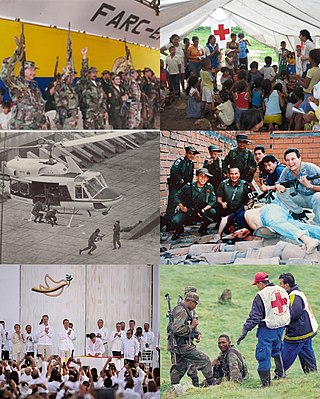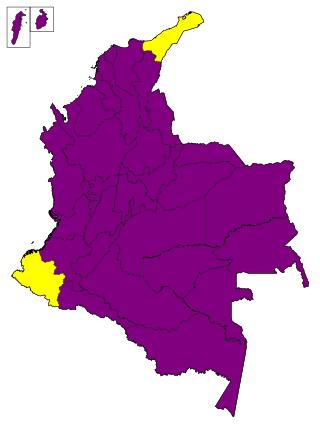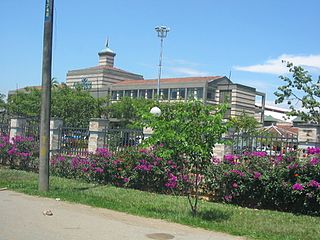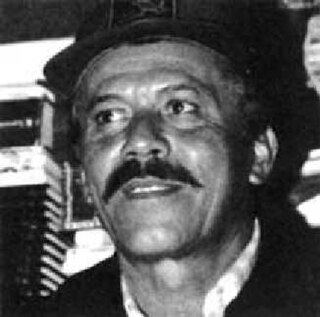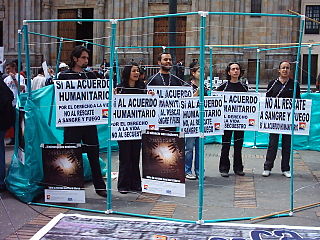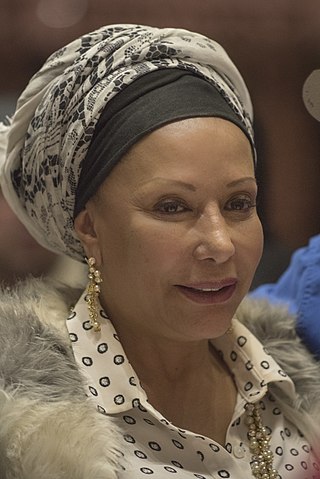| Departamento | Candidato | Partido | Votos | % |
|---|
| Amazonas | Félix Francisco Acosta Soto | Partido Convergencia Ciudadana | 9.426 | 46.81% |
| Olbar Andrade Rincón | Partido Cambio Radical | 6.895 | 34,24% |
| Eliseo Rosendo Martínez Cruz | Partido Colombia Democrática | 1.076 | 5,34% |
| Antioquia | Luis Alfredo Ramos Botero | Partido Alas Equipo Colombia | 836.526 | 44.45% |
| Eugenio Prieto Soto | Una Antioquia Nueva | 579.020 | 30,77% |
| Rodrigo de Jesus Saldarriaga Sanin | Polo Democrático Alternativo | 58,992 | 3,13% |
| Arauca | Freddy Forero Requiniva | Partido Cambio Radical | 27.889 | 38.94% |
| Adalberto Enrique Jaimes Ochoa | Partido Liberal Colombiano | 15,522 | 21,67% |
| Albeiro Vanegas Osorio | Partido de Unidad Nacional | 12.723 | 17,77% |
| Atlántico | Eduardo Ignacio Verano De la Rosa | Partido Liberal Colombiano | 344.112 | 46.41% |
| José Antonio Name Terán | Partido de Unidad Nacional | 213.270 | 28,76% |
| Bolívar | Joaco Hernando Berrío Villarreal | Partido Cambio Radical | 206.962 | 32.76% |
| Alfonso López Cossio | Partido de Unidad Nacional | 177.703 | 28,13% |
| Dionisio Miranda Tejedor | Polo Democrático Alternativo | 47.335 | 7.49% |
| Boyacá | José Rozo Millán | Verde Opción Centro | 195.537 | 35.28% |
| Pedro Alonso Sanabria Buitrago | Partido Conservador Colombiano | 191.041 | 34,46% |
| Rafael Romero Piñeros | Partido Liberal Colombiano | 56.787 | 10.24% |
| Caldas | Mario Aristizábal Muñoz | Partido Liberal Colombiano | 157.714 | 38.76% |
| Francisco José Cruz Prada | Partido de Unidad Nacional | 145.100 | 35,66% |
| Ricardo Alberto Castaño Zapata | Polo Democrático Alternativo | 14.839 | 3,65% |
| Caquetá | Luis Francisco Cuéllar Carvajal | Alianza Social Indígena | 35.780 | 32,72% |
| Álvaro Pacheco Álvarez | Partido Liberal Colombiano | 27.104 | 24,79% |
| Nelcy Almario Rojas | Movimiento Nacional Afrocolombiano | 18.622 | 17.03% |
| Casanare | Óscar Raúl Iván Flórez Chávez | Partido de Unidad Nacional | 78.774 | 59,78% |
| Efrén Antonio Hernández Díaz | Partido Liberal Colombiano | 40.776 | 30,94% |
| Yimmy Novoa Ángel | Partido Alas Equipo Colombia | 2.253 | 1.71% |
| Cauca | Guillermo Alberto González Mosquera | Movimiento Nacional Afrocolombiano | 134,866 | 32.58% |
| Eduardo José González Angulo | Partido Liberal Colombiano | 87,950 | 21.24% |
| Juan Diego Castrillón Orrego | Movimiento Alianza Social Indígena | 39,832 | 9.62% |
| Cesar | Cristian Hernando Moreno Panezo | Verde Opción Centro | 141,211 | 43.38% |
| Arturo Rafael Calderon Rivadeneira | Movimiento Independiente Libres | 94,277 | 28.96% |
| Jaime Camilo Murgas Arzuaga | Partido Conservador Colombiano | 47,847 | 14.70% |
| Chocó | Patrocinio Sánchez Montes de Oca | Partido de Unidad Nacional | 45,338 | 38.68% |
| Carlos Alberto Escobar Córdoba | Partido Liberal Colombiano | 36,431 | 31.08% |
| Yesid Francisco Perea Mosquera | Partido Conservador Colombiano | 2,639 | 2.25% |
| Córdoba | Marta del Socorro Sáenz Correa | Partido Liberal Colombiano | 234,639 | 39.16% |
| Margarita Rosa Andrade García | Partido Colombia Democrática | 203,339 | 33.93% |
| Álvaro Emiro Petro Sierra | Polo Democrático Alternativo | 12,125 | 2.02% |
| Cundinamarca | Andrés González Díaz | Partido Liberal Colombiano | 457,023 | 51.38% |
| Álvaro Cruz Vargas | Partido Cambio Radical | 217,582 | 24.46% |
| Tarsicio Mora Godoy | Polo Democrático Alternativo | 32,383 | 3.64% |
| Guainía | Iván Vargas Silva | Partido de Unidad Nacional | 3,057 | 28.99% |
| Jose Walter Lenis Porras | Partido Alas Equipo Colombia | 2,542 | 24.11% |
| Jorge villegas Caro | Alianza Social Indígena | 1,501 | 14.24% |
| Gustavo González | Partido Conservador Colombiano | 1,424 | 13.51% |
| Luis Eduardo Manotas Solano | Partido Cambio Radical | 1,011 | 9.59% |
| Guaviare | Oscar de Jesús López Cadavid | Partido Conservador Colombiano | 9,418 | 37.65% |
| Dagoberto Suárez Melo | Movimiento Convergencia Ciudadana | 8,717 | 34.94% |
| Luis Fernando Angarita González | Movimiento Colombia Viva | 4,350 | 17.39% |
| Huila | Luis Jorge Pajarito Sánchez García | Partido Conservador Colombiano | 187,792 | 49.04% |
| Carlos Mauricio Iriarte Barrios | Partido Liberal Colombiano | 128,859 | 33.65% |
| José Jairo González Arias | Polo Democrático Alternativo | 9,265 | 2.42% |
| La Guajira | Jorge Eduardo Pérez Bernier | Movimiento El Pueblo Decide | 89,064 | 44.36% |
| Miguel Antonio Murgas Núñez | Partido Liberal Colombiano | 83,869 | 41.77% |
| Jaime Enrique De Luquez Díaz | Polo Democrático Alternativo | 6,857 | 3.42% |
| Magdalena | Omar Ricardo Díaz Granados Velásquez | Partido de Unidad Nacional | 143,593 | 36.35% |
| José Luis Pinedo Campo | Partido Cambio Radical | 122,237 | 30.94% |
| Vilbrun Edward Tovar Peña | Polo Democrático Alternativo | 14,004 | 3.55% |
| Álvaro Antonio Ordóñez Vives | Movimiento Apertura Liberal | 8,093 | 2.05% |
| Meta | Darío Vásquez Sánchez | Partido de Unidad Nacional | 121,300 | 43.71% |
| Maritza Martínez Aristizábal | Movimiento Volvamos a Avanzar | 112,597 | 40.58% |
| Eudoro Álvarez Cohecha | Polo Democrático Alternativo | 9,437 | 3.40% |
| Nariño | Antonio José Navarro Wolff | Polo Democrático Alternativo | 262,917 | 49.39% |
| Vicente Germán Chamorro de La Rosa | Partido de Unidad Nacional | 172,190 | 32.34% |
| Norte de Santander | William Villamizar Laguado | Partido Conservador Colombiano | 300,451 | 63.83% |
| Luz Adriana Quiroga Wilches | Movimiento Apertura Liberal | 33,784 | 7.18% |
| Putumayo | Felipe Alfonso Guzmán Mendoza | Partido Liberal Colombiano | 43,322 | 47.99% |
| Jimmy Harold Díaz Burbano | Partido Conservador Colombiano | 27,684 | 30.67% |
| Miguel Ángel Rubio Bravo | Polo Democrático Alternativo | 9,700 | 10.75% |
| Quindío | Julio Cesar López Espinosa | Por un Quindío Para Todos | 93,632 | 41.01% |
| Gildardo Ceballos Zuluaga | Partido de Unidad Nacional | 82,861 | 36.29% |
| Henry González Mesa | Polo Democrático Alternativo | 8,481 | 3.71% |
| Risaralda | Víctor Manuel Tamayo Vargas | Partido Conservador Colombiano | 151,700 | 42.91% |
| Germán Chica Giraldo | Partido Liberal Colombiano | 120,991 | 34.23% |
| Gonzalo Arango Jiménez | Polo Democrático Alternativo | 11,303 | 3.20% |
| San Andrés | Pedro Clavel Gallardo Forbes | Movimiento Integración Regional | 8,187 | 37.23% |
| Aury Socorro Guerrero Bowie | Partido Liberal Colombiano | 8,160 | 37.11% |
| Jack Housni Jaller | Partido de Unidad Nacional | 4,063 | 18.48% |
| Santander | Horacio Serpa Uribe | Partido Liberal Colombiano | 482,745 | 55.93% |
| Didier Alberto Tavera Amado | Partido Convergencia Ciudadana | 293,972 | 34.06% |
| Juan José Landinez Landinez | Polo Democrático Alternativo | 4,838 | 0.56% |
| Sucre | Jorge Carlos Barraza Farak | Partido de Unidad Nacional | 114,976 | 32.53% |
| Julio César Guerra Tulena | Partido Liberal Colombiano | 114,087 | 32.28% |
| Lucy del Carmen Urzola Capella | Polo Democrático Alternativo | 26,246 | 7.43% |
| Tolima | Óscar Barreto Quiroga | Partido Conservador Colombiano | 178,679 | 35.25% |
| Luis Carlos Delgado Peñón | Partido Liberal Colombiano | 142,362 | 28.08% |
| Huillman Calderón Azuero | Polo Democrático Alternativo | 18,543 | 3.66% |
| Valle del Cauca | Juan Carlos Abadía Campo | Movimiento Por Un Valle Seguro | 660,174 | 47.98% |
| Francisco Javier Murgueitio Restrepo | Partido Conservador Colombiano | 117,498 | 8.54% |
| Alejandro De Lima Bohmer | Partido Alas Equipo Colombia | 107,484 | 7.81% |
| Fabiola Perdomo Estrada | Alianza Social Indígena | 79,025 | 5.74% |
| Orlando Riascos Ocampo | Polo Democrático Alternativo | 63,155 | 4.59% |
| María del Socorro Bustamante Ibarra | Partido Liberal Colombiano | 45,428 | 3.30% |
| Vaupés | Leonidas Soto Muñoz | Cambio Radical | 35.57% |
| Carlos Ivan Melendez | Movimiento Colombia Viva | 31.35% |
| Iván Darío Sandoval Perilla | Alianza Social Indígena | 25.26% |
| Vichada | Blas Arvelio Ortiz Rebolledo | Partido de la Unión por la Gente | 33.36% |
| Juan Carlos Ávila | Partido Liberal Colombiano | 33.31% |
| Hugo Janio López Chaqueo | Alas Equipo Colombia | 24.37% |






